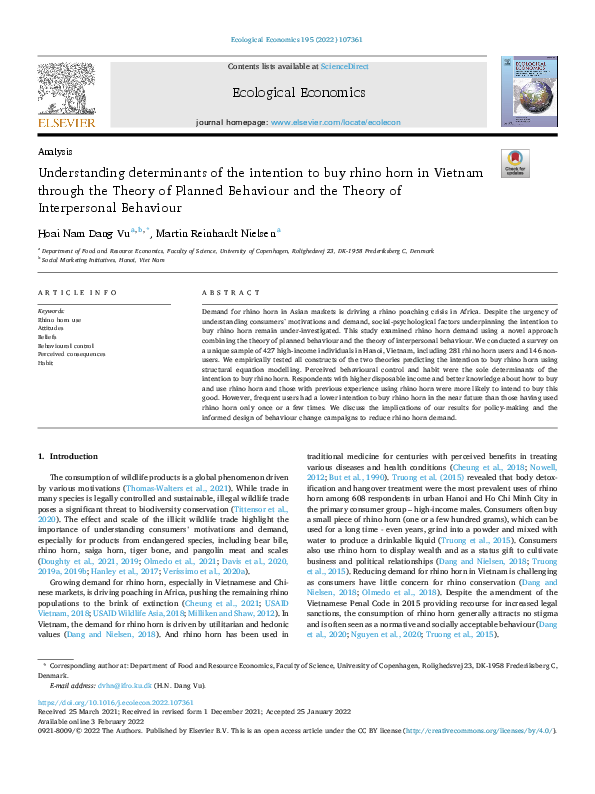Journal Article
Understanding determinants of the intention to buy rhino horn in Vietnam through the Theory of Planned Behaviour and the Theory of Interpersonal Behaviour
Demand for rhino horn in Asian markets is driving a rhino poaching crisis in Africa. Despite the urgency of understanding consumers' motivations and demand, social-psychological factors underpinning the intention to buy rhino horn remain under-investigated. This study examined rhino horn demand using a novel approach combining the theory of planned behaviour and the theory of interpersonal behaviour. We conducted a survey on a unique sample of 427 high-income individuals in Hanoi, Vietnam, including 281 rhino horn users and 146 non-users. We empirically tested all constructs of the two theories predicting the intention to buy rhino horn using structural equation modelling. Perceived behavioural control and habit were the sole determinants of the intention to buy rhino horn. Respondents with higher disposable income and better knowledge about how to buy and use rhino horn and those with previous experience using rhino horn were more likely to intend to buy this good. However, frequent users had a lower intention to buy rhino horn in the near future than those having used rhino horn only once or a few times. We discuss the implications of our results for policy-making and the informed design of behaviour change campaigns to reduce rhino horn demand.







